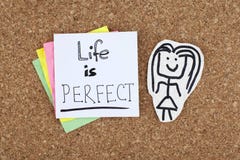In an earlier post I said that I'd write later about ways of dealing with anxiety -- other than drinking to blot it out. I found out that drinking wasn't a great long-term solution because then I had two reasons to be anxious: the original one (whatever that was) and the fact that I was spending a lot of time with a drink in my hand.
In some cases there are bona fide reasons for anxiety, such as anticipation of a stressful situation that we know is coming up. We're about to give a speech and we're nervous. We're going to have a "difficult discussion" with someone and we don't know how well it's going to go. These things are real, and make us anxious for good reason. In some cases we can pinpoint the reason for anxiety, even if it's not a particularly sensible one. For me, I get anxious if I have some new symptom and I don't know what's causing it. This is a problem for me because I'm a bit of a hypochondriac. Knowing this helps, but it doesn't necessarily keep me from being anxious anyway.

In some cases, for some people, anxiety hits and we don't have a clue where it's coming from. It might be caused by something specific, but it's buried somewhere in our subconscious mind, and we can't figure it out no matter how much we try. Or I've read that it might be some kind of chemical imbalance in our brain. Either way, we can't directly address it because we don't know what "it" is. This used to show up for me at about 3 o'clock in the morning. I'd wake up and have a pounding heartbeat and a jittery feeling. It's awful and it just won't go away.
First I'm going to talk briefly about medical solutions, because they might be necessary. Then I'm going to talk about other things to try, things hat have helped me.
If we go to our physician and talk about anxiety, there's a good chance that he/she will prescribe something like Xanax. That's what mine did at first. It generally works well, but it isn't a long-term solution because we can become addicted to it. I did. And when we combine it with any other mood-altering substances like alcohol, it magnifies the effect and can become dangerous to our physical safety. For example, I started having more frequent incidents of stumbling over pieces of furniture. I swore that they did it on purpose!
There are other long-term pharmacological treatments for "free-floating anxiety" that are less dangerous. I now take one of them, once a day, and it works without causing me to "zone out." If you have this sort of problem, do some research and have a long talk with your physician. You might need to see a psychiatrist or another kind of therapist. Do it -- it's worth the time and effort.
Since I went to a rehab facility at Father Martin's Ashley, and since I joined a 12-step program, I've learned other ways to relieve anxiety that have helped me a lot. One is yoga and another is meditation. I used to think of both of them as new-age, "woo-woo" practices for people who were "not like me. I envisioned aging hippie vegetarians sitting cross-legged at sunrise chanting "Ommmm..." Now I'm one of them!
Yoga loosens the joints, stretches the muscles, and quiets the mind. I'm not talking about hot yoga or the kind that pushes you rapidly from position to position without a chance to take a breath. I practice a kind of "gentle yoga" that proceeds slowly, gives me easier options if I can't manage a specific contortion, and begins and ends with quiet relaxation. I go to yoga classes at the local YMCA for three reasons: I appreciate the sense of community in my group, I like the instructor, and having it on my schedule helps me to really DO it. But it can be practiced at home and alone if we prefer it that way. The bottom line is this: I've gone into a yoga class feeling anxious and unsettled, but I've never ended it that way.
Meditation helps me with my 12-step program. At each 12-step meeting we recite the Serenity Prayer:
"God grant me the serenity to accept what I cannot change, the courage to change the things I can, and the wisdom to know the difference." Meditation is one way that helps me achieve the serenity, the courage and the wisdom. There are different kinds of meditation (I didn't know this before). I like to practice "mindfulness" because it helps me to focus on the present moment, rather than dwelling in the past or worrying about the future. It allows me to examine whatever is going on in my mind, and in my life, and to accept it. It also gives me quiet time to just sit and "be." I think of it as a companion to prayer. When I pray I communicate with God. When I meditate, I am open for God to communicate with me. Sometimes this happens and sometimes it doesn't, and that's okay too. The bottom line for meditation, as with yoga, is that it leaves me feeling calm and peaceful. My goal is to meditate for at least ten minutes every day. Some days I forget, and other days I do it for longer than ten minutes, or even several times during the day. In the beginning it was hard to achieve that peaceful feeling. The more I do it, the easier it gets.
I still get anxious from time to time. Most of the time I can now better identify the cause. Maybe I'm rushing to meet some kind of self-imposed deadline. Maybe I'm trying to accomplish something and I'm frustrated because I can't quite get it right. I feel my neck muscles get tense, and my breathing get shallower, and my heartbeat speed up. When I feel it coming, I try to consciously address it. I slow down whatever I'm doing, or I stop doing it. If I'm sitting down, I get up and stretch. I take several slow, deep breaths. I ask myself, "Does this really have to be finished right now?" Maybe not. Maybe instead I should take a walk, or sit in a quiet place and do a little meditation, or even plop myself in front of the TV with some knitting in my hands. Maybe I should be a "human being" instead of a "human doing."
If there's a specific thing that I'm anxious about, I ask myself, "What action can I take about this?" If I'm worried about my health, I make a doctor's appointment. If I'm troubled by a relationship issue, I talk to the person about it. If I'm frustrated because I can't figure something out, I ask for help. In many cases, I say a prayer. And then I let it go. I've done everything I can do. The rest is up to God.
"Easy Does It" is one of the most popular sayings in 12-step programs, because when we don't take it easy we get stressed, and when we get stressed we're more vulnerable to temptation. We want the uncomfortable feelings to go away, and we drink (or do drugs, or eat, or gamble). But this doesn't make them go away, it just temporarily blots them out. They always come back. Much better to address the stress, or the anxiety, in a positive way when the first symptoms occur. Take my word for it.
























